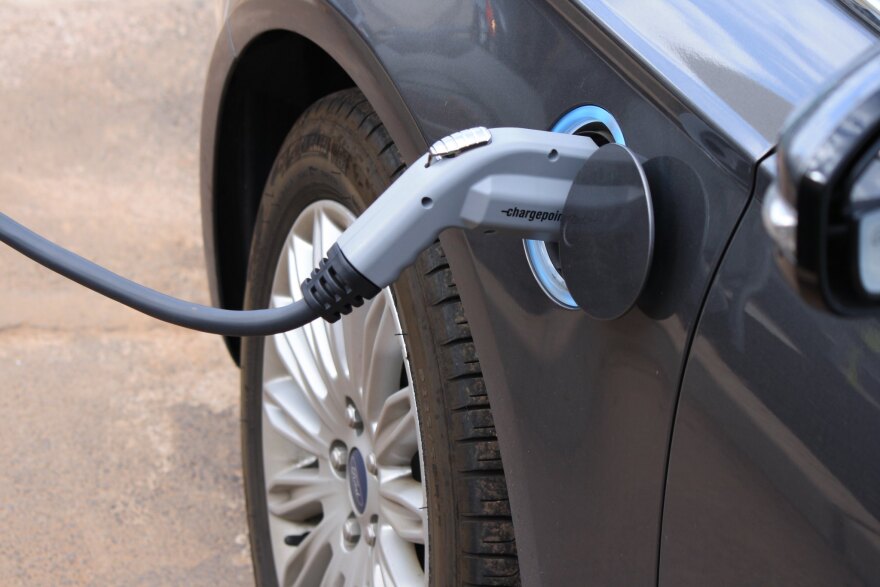New Hampshire’s Public Utilities Commission rejected a proposal from Unitil to start laying the groundwork for more electric vehicle charging in New Hampshire.
The utility company’s “make-ready” proposal, totalling about $2.8 million, would have helped to build four fast charging stations and up to 20 other public charging sites, and it would also have provided rebates for residential charging stations.
A 2019 report commissioned by New Hampshire’s Department of Business and Economic Affairs said the most common policy recommendation stakeholders identified that could help develop EV infrastructure in New Hampshire was “make-ready” investments from utility companies.
But state regulators rejected Unitil’s plan, saying the utility’s charging stations would compete with others built by businesses or municipalities, and would likely only benefit the most affluent group of Unitil customers.
Sarah Brock, the program director for climate, energy and transportation at Vital Communities, said utilities like Unitil could play an important role in the transition to electric vehicles.
“What we've seen historically is that the utilities have to be involved, because they have a vested interest in electrification,” she said. “They're able to be creative when the PUC allows them to.”
For Sam Evans-Brown, who leads the advocacy group Clean Energy New Hampshire, utility companies represent a unique kind of investor.
"We need people who are willing to wait for five or ten years before it starts to make a return on its investment. And frankly, that's what utilities do... So they're the perfect industry to step in to do this,” he said.
Evans-Brown said he’s sympathetic to the kind of concerns commissioners expressed about all ratepayers paying for benefits that may go to more affluent customers. But, he said, that argument is a bit of a red herring.
“Utility rate-making is full of cost shifts. It's all about averages,” he said. “So the question is really what types of cost shifts are acceptable and what are wise investments? And I think this commission has shown that they don't believe that any investment in electrifying transportation is wise.”
And as New Hampshire lags neighboring states in creating a public network of electric vehicle chargers, a lack of utility investment could cast a shadow on the future, Evans-Brown said. Delays in building public charging infrastructure could particularly impact the state’s tourist economy, and people who are excited about electric vehicles but who might not be able to afford residential charging systems, he said.
Eversource has also proposed a plan for electric vehicle infrastructure. Their plan would cost about $2 million, and would support some of the work necessary to get other EV chargers funded by Volkswagen settlement funds up and running.








